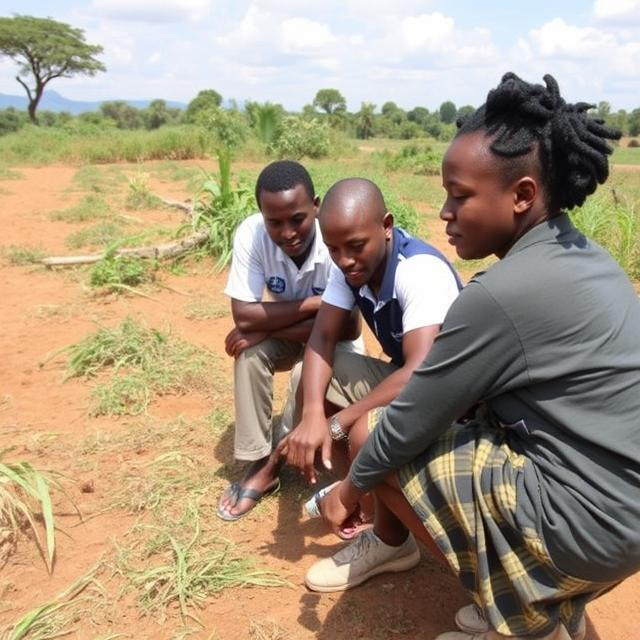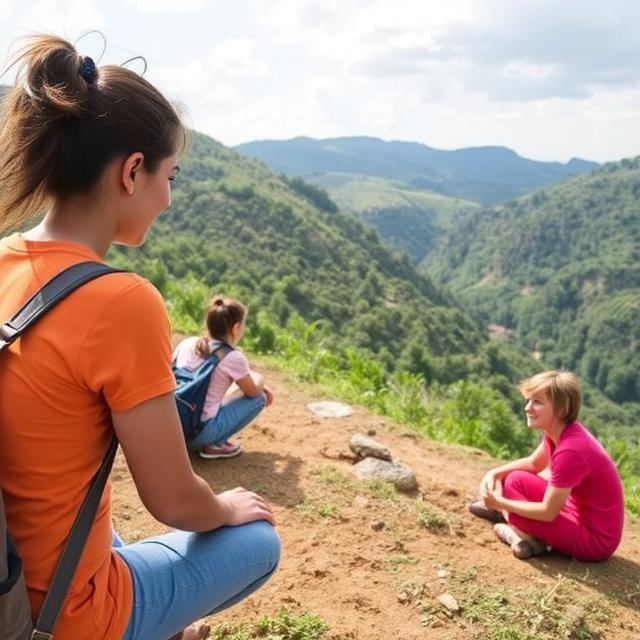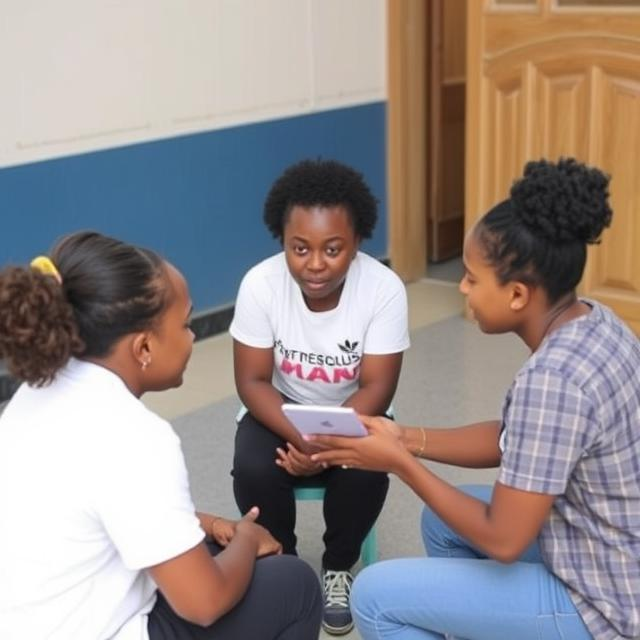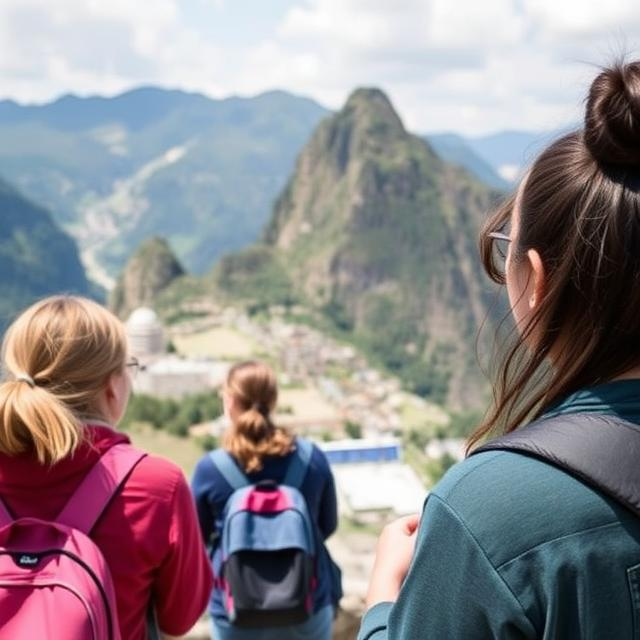Traveling abroad can be exciting, but unexpected situations like medical emergencies, flight cancellations, or lost baggage can disrupt your plans. For Nigerian travelers, having travel insurance is not just an option—it’s a necessity. Here’s why: 1. Medical Emergencies Can Be Costly Many countries have expensive healthcare systems, and without insurance, you may have to pay thousands of dollars for medical treatment. Travel insurance covers: 2. Flight Cancellations and Delays Travel disruptions happen due to weather, strikes, or airline technical issues. Insurance can reimburse: 3. Protection Against Lost or Stolen Belongings Luggage theft or misplacement can be frustrating. Travel insurance helps recover costs for: 4. Visa Requirements for Some Countries Many countries, including Schengen states, the UK, and the US, require proof of travel insurance before issuing a visa. Having a valid policy increases your chances of visa approval. 5. Personal Liability Coverage If you accidentally damage property or cause injury to someone abroad, travel insurance can cover legal expenses and compensation claims. 6. Peace of Mind for Adventure Travelers If you plan on engaging in activities like hiking, scuba diving, or skiing, travel insurance with adventure coverage protects you from unexpected accidents. 7. COVID-19 and Other Health Risks Many insurers now include COVID-19 coverage, helping with quarantine costs, testing, and medical expenses if you get infected during your trip. 8. Affordable Protection for a Stress-Free Trip The cost of travel insurance is small compared to potential expenses from medical emergencies, trip cancellations, or lost belongings. It provides security and ensures you travel with confidence.
How To Choose The Right Volunteer Program For Your Skills
Volunteering can be a life-changing experience, but choosing the right program is essential to make the most impact while developing your skills. Here’s a step-by-step guide to selecting the best volunteer program that aligns with your expertise and interests. 1. Assess Your Skills and Interests Start by identifying your strengths, professional experience, and personal interests. Ask yourself: 2. Define Your Volunteering Goals Clearly outline what you hope to gain from the experience. Common goals include: 3. Research Volunteer Programs That Match Your Skills Look for programs that align with your expertise. Some examples include: 4. Consider Location and Duration Choose a program that fits your availability and comfort level with travel. 5. Verify Program Credibility and Support Services Before committing, research the organization’s reputation and ensure they provide: 6. Check Program Costs and Funding Options Some programs require volunteers to cover expenses like flights, accommodation, and insurance. Consider: 7. Read Reviews and Connect with Past Volunteers Search for testimonials from previous participants to understand the program’s effectiveness and potential challenges. 8. Apply and Prepare for the Experience Once you choose a program:
Success Stories: Nigerians Making A Difference Through Volunteering
Many Nigerians have made a significant impact globally through volunteerism, contributing to education, healthcare, environmental conservation, and humanitarian aid. Their efforts have not only changed lives but also inspired others to take action. Here are some remarkable success stories of Nigerians making a difference through volunteering. 1. Temie Giwa-Tubosun – Saving Lives Through Blood Donations Temie Giwa-Tubosun, the founder of LifeBank, started as a volunteer in healthcare outreach programs. She later established LifeBank, a platform that connects blood donors to hospitals in need, addressing Nigeria’s critical blood shortage problem. Her efforts have saved thousands of lives, particularly in emergency maternal and child healthcare. 2. Dr. Ola Orekunrin – Volunteer-Driven Emergency Healthcare Dr. Ola Orekunrin, a Nigerian-British doctor, founded Flying Doctors Nigeria, an air ambulance service that provides emergency healthcare in remote areas. She was inspired to start the organization after volunteering in various medical outreach programs. Today, her initiative helps transport critically ill patients across West Africa. 3. Samson Itodo – Empowering Nigerian Youth Through Civic Engagement Samson Itodo is a youth activist and founder of YIAGA Africa, a civic organization that promotes democratic governance. His volunteer efforts in election monitoring and youth advocacy led to the successful Not Too Young To Run campaign, which lowered the age requirement for political candidates in Nigeria. 4. Olumide Idowu – Environmental Advocacy and Climate Change Action Olumide Idowu, co-founder of the International Climate Change Development Initiative (ICCDI), started as a volunteer advocating for climate action in Nigerian communities. His work has led to numerous awareness programs on environmental sustainability, empowering young Nigerians to take action against climate change. 5. Bilikiss Adebiyi-Abiola – Transforming Waste Management in Nigeria Bilikiss Adebiyi-Abiola, founder of Wecyclers, started her journey by volunteering in waste management programs. She later built a recycling startup that incentivizes low-income households to exchange waste for rewards, reducing pollution and creating job opportunities. 6. Esther Ijewere – Championing Women’s Rights Through Volunteering Esther Ijewere, a social activist and founder of Women of Rubies, started by volunteering in women’s empowerment programs. Today, she runs initiatives that support victims of domestic violence, provide mentorship for young girls, and advocate for gender equality. 7. Seun Oke – Providing Educational Opportunities for Underprivileged Kids Seun Oke, founder of the DreamCatchers Academy, was inspired by her volunteer work in slum communities. Her organization provides free education and arts training to children from low-income backgrounds, giving them a platform to succeed. 8. David Lanre Messan – Driving Entrepreneurship Through Volunteering David Lanre Messan started as a volunteer mentor for young entrepreneurs. Today, he is the CEO of FirstFounders Inc., a startup investment firm that provides funding and mentorship to African entrepreneurs, helping them build successful businesses.
The Role Of NGOs In Facilitating International Volunteering
Non-Governmental Organizations (NGOs) play a crucial role in organizing, supporting, and managing international volunteering opportunities. They connect volunteers with meaningful projects, provide logistical support, and ensure that volunteering efforts contribute positively to communities. 1. Connecting Volunteers with Opportunities NGOs serve as a bridge between volunteers and communities in need. They assess local needs and design programs that allow volunteers to contribute effectively. Key Responsibilities: 2. Providing Training and Orientation Before volunteers embark on their assignments, NGOs offer training to prepare them for cultural, social, and professional challenges. Training Includes: 3. Offering Logistical Support Many NGOs handle the logistics involved in international volunteering, making it easier for participants to focus on their work. Support Services Include: 4. Ensuring Ethical and Sustainable Volunteering NGOs play a key role in ensuring that volunteering programs are ethical and do not exploit local communities. How NGOs Promote Ethical Volunteering: 5. Advocating for Volunteer Rights and Policies NGOs work with governments and international bodies to create policies that support safe and impactful volunteering. Advocacy Efforts Include: 6. Funding and Sponsorship for Volunteers Some NGOs provide financial assistance to volunteers who cannot afford program fees. Funding Support Includes: 7. Monitoring and Evaluating Volunteer Impact NGOs track and assess the effectiveness of volunteer programs to ensure they are achieving their goals. Evaluation Methods: Examples of NGOs Facilitating International Volunteering
How To Fund Your Volunteer Trip Abroad
Volunteering abroad can be a rewarding experience, but the costs of travel, accommodation, and program fees can be a challenge. Fortunately, there are several ways to raise funds and make your trip more affordable. 1. Apply for Volunteer Grants and Scholarships Many organizations offer grants and scholarships to help cover the cost of volunteering abroad. Research programs that align with your chosen field of volunteering. Examples of Grant Providers: 2. Crowdfunding and Online Fundraising Crowdfunding is a great way to raise money by sharing your volunteer goals with friends, family, and the online community. Steps to Create a Successful Fundraising Campaign: 3. Organize Fundraising Events Hosting local fundraising events can help you raise money while engaging your community. Ideas for Fundraising Events: 4. Seek Sponsorship from Businesses and Organizations Local businesses, corporate sponsors, and community organizations may be willing to support your trip in exchange for brand visibility. How to Approach Sponsors: 5. Find a Volunteer Program with Free or Low-Cost Options Some organizations provide free or low-cost volunteering opportunities that cover accommodation and meals in exchange for your work. Affordable or Free Volunteer Programs: 6. Use Savings and Budget Wisely If possible, start saving in advance and cut unnecessary expenses to fund your trip. Money-Saving Tips: 7. Apply for Travel Discounts and Deals Many organizations offer discounts on flights, accommodations, and insurance for volunteers. Where to Find Discounts:
Volunteering In Africa: Opportunities And Challenges
Volunteering in Africa offers a chance to make a meaningful impact while experiencing diverse cultures, breathtaking landscapes, and vibrant communities. Whether in education, healthcare, wildlife conservation, or community development, numerous opportunities exist for short- and long-term volunteers. However, volunteering in Africa also comes with challenges that require preparation and adaptability. Opportunities for Volunteering in Africa Education & Teaching Programs Many schools in Africa lack sufficient teachers and resources. Volunteers can help by: Popular Destinations: Kenya, Ghana, Tanzania, Uganda Healthcare & Medical Assistance Volunteers with medical or public health backgrounds can contribute by: Popular Destinations: South Africa, Malawi, Zambia, Ethiopia Wildlife & Conservation Projects Africa is home to unique wildlife and ecosystems that need protection. Volunteers can: Popular Destinations: South Africa, Namibia, Madagascar, Botswana Community Development & Humanitarian Aid Many rural areas lack access to basic infrastructure and services. Volunteers can: Popular Destinations: Rwanda, Senegal, Uganda, Mozambique Agriculture & Sustainable Development Volunteers can contribute to food security and sustainable farming by: Popular Destinations: Malawi, Zimbabwe, Nigeria, Kenya Challenges of Volunteering in Africa Cultural Adaptation & Language Barriers Many African countries have diverse languages and customs. Adapting to different cultural norms and learning basic local phrases can help ease communication. Limited Infrastructure & Resources Some rural areas may lack reliable internet, electricity, and clean water. Volunteers should be prepared for basic living conditions in certain placements. Visa & Travel Restrictions Visa requirements vary by country and program. Some volunteering roles require specific permits, and it’s essential to check travel advisories before departure. Health & Safety Concerns Diseases like malaria and yellow fever are common in some regions. Volunteers should: Ethical Volunteering & Avoiding Exploitation Not all volunteer programs are ethical. Some exploit local communities for profit (e.g., voluntourism scams). To ensure a responsible experience: How to Find Volunteer Programs in Africa Reputable Organizations to Consider
How To Find Short-Term Volunteer Opportunities Overseas
Short-term volunteer programs abroad offer a great way to travel, gain new experiences, and contribute to meaningful causes without making a long-term commitment. Whether you’re looking to help in education, healthcare, environmental conservation, or community development, there are many opportunities available. Here’s how to find the right one: 1. Identify Your Goals & Interests Before searching for programs, determine:✔️ What causes you are passionate about (e.g., education, wildlife conservation, disaster relief).✔️ Your available timeframe (weeks or months).✔️ Your budget for travel, accommodation, and program fees. 2. Search for Reputable Volunteer Organizations Look for well-established organizations that offer structured programs with support. Some reliable platforms include: 3. Choose Destinations That Offer Short-Term Visa Options Some countries make it easier for short-term volunteers to obtain visas. Popular destinations for short-term volunteering include: Costa Rica – Environmental conservation & community projects. Thailand – Teaching, animal rescue, and medical aid. South Africa – Wildlife conservation & education programs. Peru – Healthcare & cultural immersion projects. 4. Check Visa & Travel Requirements 5. Apply & Prepare for the Experience ✔️ Submit Applications Early – Some programs have limited slots.✔️ Attend Online Interviews (if required).✔️ Secure Necessary Travel Documents – Visa, travel insurance, etc.✔️ Arrange Accommodation & Flights – Some programs include housing, while others require self-arrangement. 6. Budget for Expenses Short-term volunteering often requires covering costs like: Program fees (varies by organization). Flights & travel insurance. Daily expenses (food, local transport). 7. Connect With Past Volunteers
The Impact Of Volunteering On Personal Development
Volunteering is a powerful tool for personal growth, offering opportunities to develop new skills, build meaningful connections, and enhance self-awareness. Whether you volunteer locally or internationally, the experience can shape your character and future career in profound ways. Here’s how volunteering contributes to personal development: 1. Builds Confidence & Self-Esteem 2. Develops Strong Communication Skills 3. Enhances Leadership & Problem-Solving Abilities 4. Expands Cultural Awareness & Emotional Intelligence 5. Strengthens Time Management & Organization 6. Boosts Mental Well-Being & Reduces Stress 7. Encourages Lifelong Learning & Career Growth 8. Instills a Sense of Responsibility & Civic Engagement
Steps To Apply For Volunteer Positions With Visa Sponsorship
Applying for a volunteer position with visa sponsorship requires careful planning and research. Many organizations offer visa support for international volunteers, but the process varies by country and program. Here’s a step-by-step guide to help you successfully apply: Step 1: Identify Volunteer Programs Offering Visa Sponsorship Not all volunteer programs provide visa sponsorship, so focus on organizations that explicitly mention it. Some well-known programs offering visa assistance include: Step 2: Research Eligibility Requirements Each program has different requirements based on skills, experience, and the host country’s visa policies. Generally, you’ll need:✔️ A valid passport✔️ Relevant skills or qualifications (depending on the program)✔️ A clean criminal record (background check may be required)✔️ Medical fitness (some programs require health screening) Step 3: Prepare Your Application Documents A strong application improves your chances of selection. Prepare: Resume/CV: Highlight relevant skills and experience. Cover Letter: Express your motivation and suitability for the role. Reference Letters: Some programs require recommendations from past employers, mentors, or teachers. Academic/Professional Certificates: Depending on the position, proof of education or work experience may be required. Step 4: Apply Through the Organization’s Official Website Most organizations have an online application portal where you can: Step 5: Attend an Interview (if required) Some organizations conduct interviews to assess your suitability. Be prepared to answer questions about: Step 6: Receive an Offer & Visa Sponsorship Letter If selected, the organization will provide:✔️ An official offer letter confirming your volunteer role.✔️ A visa sponsorship letter to support your visa application.✔️ Instructions on visa application procedures based on the host country’s requirements. Step 7: Apply for the Volunteer Visa Using the visa sponsorship letter, apply for a volunteer visa at the embassy or consulate of your destination country. Typical visa requirements include: Step 8: Prepare for Travel & Relocation Once your visa is approved:✔️ Book your flights and arrange accommodation (if not provided).✔️ Attend orientation/training (some programs require this before departure).✔️ Get necessary vaccinations (depending on the country).✔️ Plan your budget for personal expenses.
How Volunteering Abroad Can Boost Your Career Prospects
Volunteering abroad is more than just a humanitarian effort—it can significantly enhance your career prospects. Employers value candidates with global experience, adaptability, and a strong work ethic. Here’s how volunteering overseas can give you a competitive edge in the job market: 1. Develops Transferable Skills International volunteering helps you build essential skills that are valuable across industries, such as: 2. Enhances Cultural Competence & Global Awareness Employers increasingly seek professionals who can work across cultures. Volunteering abroad: 3. Strengthens Your Resume & Makes You Stand Out A volunteer experience abroad demonstrates initiative and dedication. It can set you apart from other candidates in fields like: Employers view global volunteer work as a sign of adaptability, resilience, and a willingness to go beyond the ordinary. 4. Expands Your Professional Network While volunteering, you meet people from different backgrounds, including: 5. Opens Pathways to International Job Opportunities Many volunteers transition into paid positions within NGOs, international organizations, and businesses. Some programs even offer: 6. Boosts Confidence & Personal Growth Stepping outside your comfort zone fosters personal development. Volunteering abroad can help you: 7. Shows Commitment to Social Responsibility Companies appreciate employees who are socially conscious. Many organizations have corporate social responsibility (CSR) initiatives, and experience in volunteering abroad aligns well with these values.











